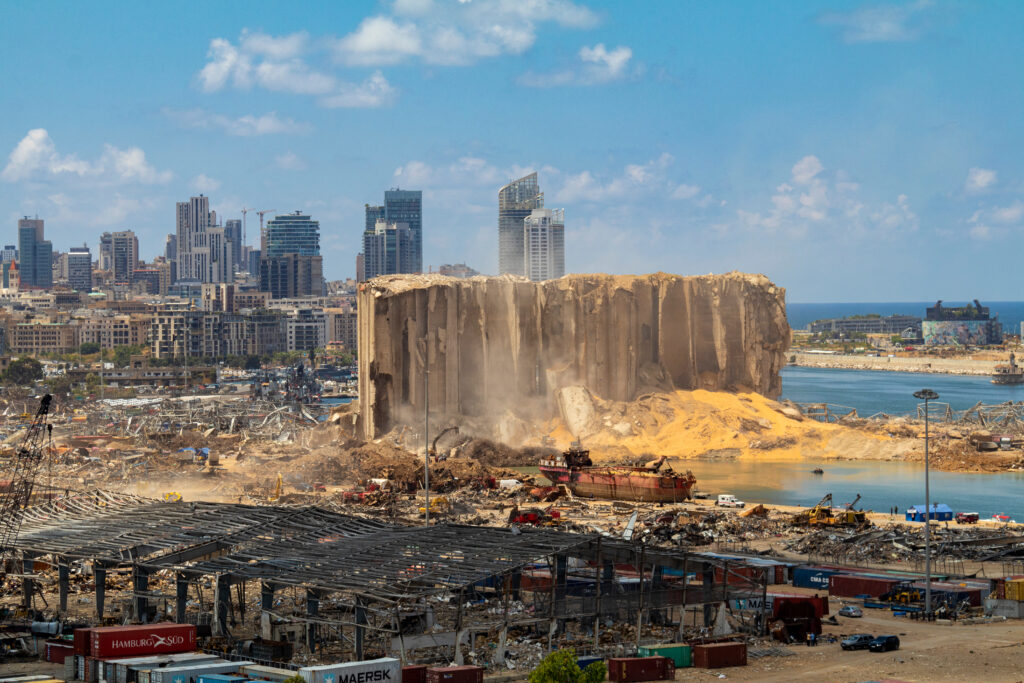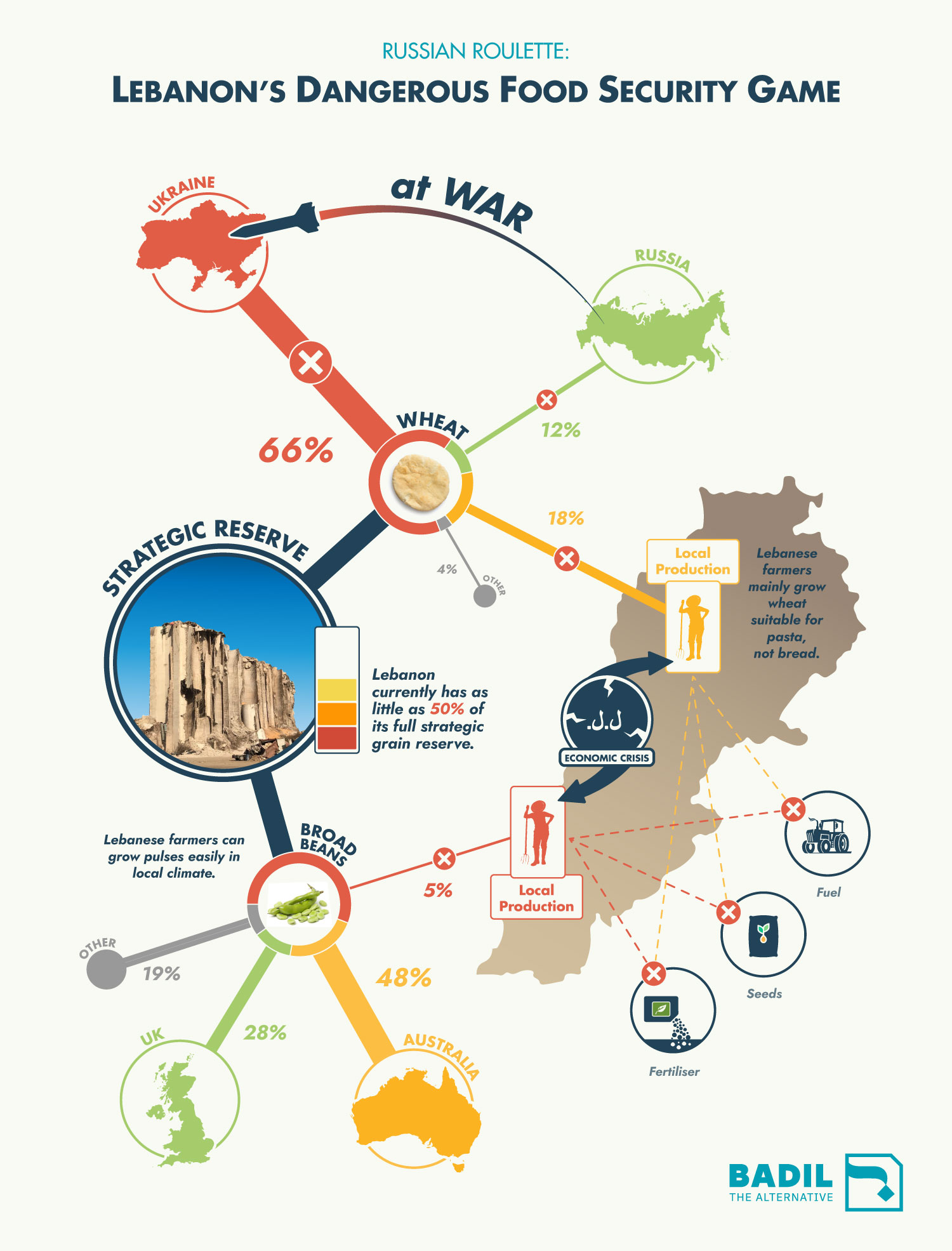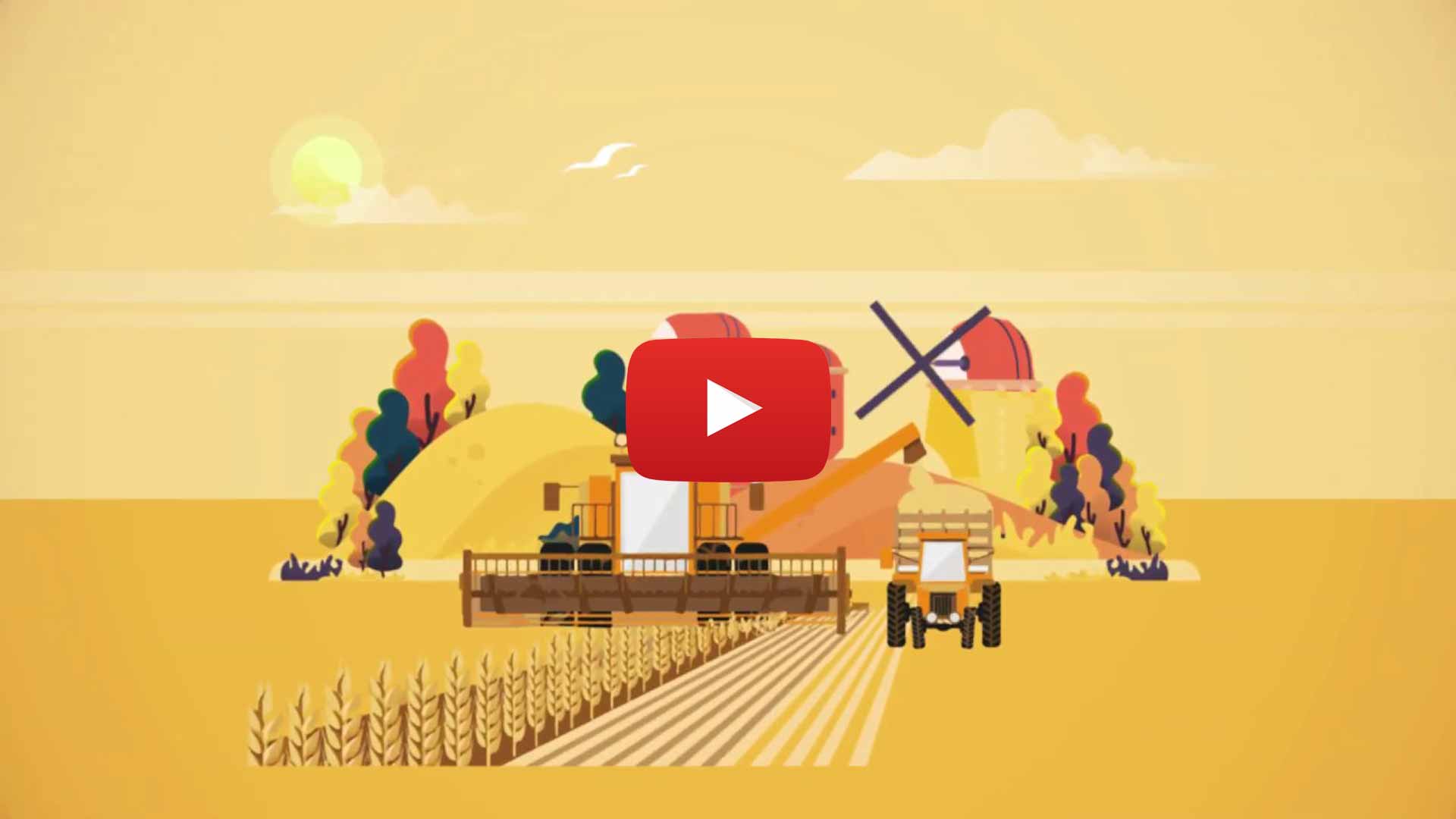As Russian soldiers pour into Ukraine, grave uncertainty looms over Lebanon’s wheat supply. For years, Lebanon has relied overwhelmingly on both countries to provide the wheat used to make the nation’s leading staple food: bread.
Already, the conflict has exposed that Lebanon’s indolent political class has left the country wide open to catastrophe. Within weeks, Lebanon could face crippling wheat shortages. This would inevitably drive up the price of bread for a population already struggling to buy food.
The Ukrainian crisis is merely the latest alarming threat to Lebanese food security in recent years. It follows on the heels of the country’s economic crisis, the COVID-19 pandemic, and the Beirut Port explosion – a series of unambiguous warning shots.
Without doubt, war in Ukraine matters to Lebanon. The country relies almost entirely on imports from the Black Sea countries to meet annual wheat demands; according to UN-FAO statistics, in 2020 Lebanon sourced 66% of total wheat from Ukraine and a further 12% from Russia. If wheat prices continue to spike, then the cash-strapped Lebanese government will struggle to secure bread for its people.
It is for precisely these emergency situations that countries maintain a strategic grain reserve – a large wheat stockpile to mitigate supply line cuts. In Lebanon, the state previously ensured that about three months’ worth of wheat always remained in storage, ready to ward off unexpected food security threats. That was until Tuesday, 4 August 2020.




